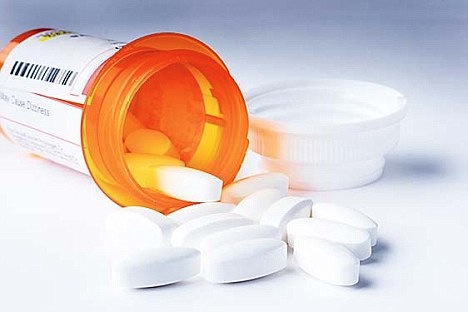MailOnline
By Jo Macfarlane
7 July 2012
One of the world’s biggest drug companies is at the centre of an urgent investigation after failing to disclose reports that 15,000 people died while taking its medicines.
Swiss pharmaceutical giant Roche failed to pass on a further 65,000 reports of suspected side effects that were recorded by patients.
All of the reactions took place in the United States over the past 15 years with medicines used to treat breast cancer, bowel cancer, hepatitis B, and skin and eye conditions.

Roche, one of the world's biggest drug companies, is at the centre of an urgent
investigation after failing to report that people died while taking their medication
There is no evidence so far of any direct link between the problems and the drugs – but medicines watchdogs say they are taking Roche’s failure to disclose possible concerns ‘extremely seriously’.
The drugs involved include Herceptin, given to about 10,000 breast cancer patients in Britain, and Lucentis, which is used to treat about 20,000 UK patients a year with age-related vision loss. The NHS pays Roche millions of pounds for these treatments every year.
The extent of the failings were discovered when the UK medicines watchdog, the Medicines and Healthcare products Regulatory Agency (MHRA), carried out a routine inspection of Roche’s drug safety procedures at its headquarters in Welwyn Garden City, Hertfordshire.
The company has now been ordered by the MHRA and the EU-wide regulator, the European Medicines Agency, to investigate immediately each of the total 80,000 deaths and side effects reported. Both agencies said they were ‘taking action’ over Roche’s failures.
All of the deaths and possible adverse reactions were reported by patients who rang a call centre run by Roche’s US subsidiary Genentech. Staff there failed to pass on the reports to Roche’s drug safety team – but it is not known why
Professor Sir Kent Woods, chief executive of the MHRA, said: ‘Patients should continue to take their medicines because our investigation has currently found no evidence of a safety risk to patients.
‘Roche’s actions are unacceptable and our investigation has identified that its reporting systems are inadequate. We are taking urgent action to ensure that these are rectified by Roche as a matter of priority. We will take action to ensure that patients are protected now and in the future.’
All of the deaths and possible adverse reactions were reported by patients who rang a call centre run by Roche’s US subsidiary Genentech. Staff there failed to pass on the reports to Roche’s drug safety team – but it is not known why.
Roche, which made profits of £6.3 billion in 2010, has a legal duty to examine every suspected side effect and report them to regulators around the world so that potential safety concerns can be investigated.
This means that each side effect reported to the patient support call centre should have been immediately sent to the safety team to be assessed.
These must then be sent to regulators – within 15 days for the most serious reactions – even if no link between the drug and the reaction be proved.
Some of the call centre’s records, which date back to 1997, are said to have been noted down on paper and kept in boxes.
The European Medicines Agency, which made the findings public, said: ‘There is at present no evidence of a negative impact for patients and while the investigations and being conducted there is no need for patients or healthcare professionals to take any action.’

A number of drugs are being investigated following the incident
However, a spokeswoman added: ‘It’s not often we make statements on such findings, so we do take this incredibly seriously. The numbers are huge but we’re not talking about confirmed reactions.
‘Some might not be related, and some may have already been reported to the regulators via other mechanisms – for example directly to us by doctors.’ But she added: ‘We cannot rule out that additional safety concerns could be discovered.’
When asked if legal action could be taken against Roche, she said: ‘We are looking at all options. There are penalty regulations and they could be fined.’
Other drugs being examined include Avastin, used for bowel and breast cancer; lung cancer medication Tarceva; Rituxan, which treats non-Hodgkin’s lymphoma; the stroke drug Alteplase; Actemra for rheumatoid arthritis; Pegasys for hepatitis B; and Raptiva for the skin condition psoriasis.
If any new safety concerns emerge after examining the data, regulators could decide to withdraw the drugs or change their guidance to doctors.
In a statement, Roche said: ‘Patient safety is of paramount importance to Roche. We acknowledge the concerns that can be caused by this issue for people using our medicines.
‘The non-assessment and non-reporting of these adverse events was not intentional and we are taking comprehensive steps necessary to address the findings of the MHRA inspection. We have provided initial estimates of missed adverse events and are in the process of confirming the final number.
‘We expect to complete all activities related to these programmes as soon as possible.’






Leave a comment